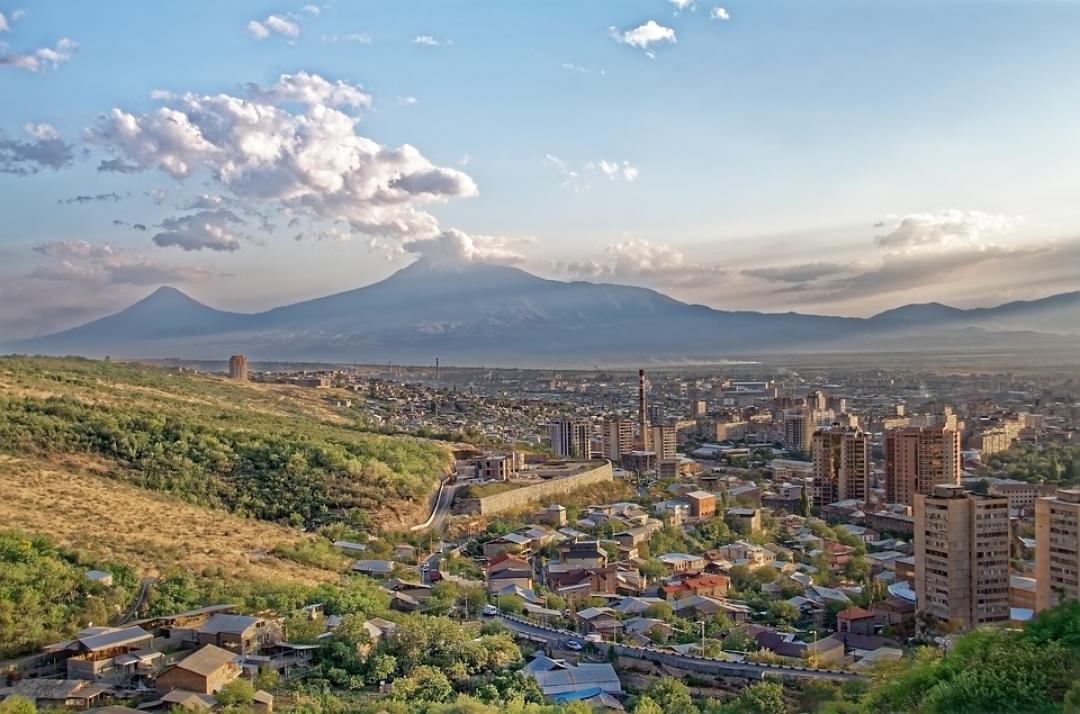
Elections in Armenia: political representatives present visions of post-war economy

On 15 June, representatives of six political parties and blocs, running in the early parliamentary elections slated for June 20, presented their models for economic recovery after the war in Karabakh as they spoke at a discussion organised by the Public Television of Armenia.
The representative of the ruling Civil Contract party and acting Minister of Economy Vahan Kerobyan said the focus of his party would be on building an economy free from corruption to secure high growth. Alexander Khachatryan, from the ruling team's main rival the “Armenia” bloc stated that first it was necessary to concentrate on infrastructures that ensure the country's security as there is a problem with equipping borders and there are issues with roads, water resources and electricity. Khachatryan noted that the bloc will continue to work on the improvement of the business environment through digitalisation. The bloc will also cut taxes as much as possible, as well as concentrate on increasing exports.
Robert Harutyunyan from the “I have honour” bloc stressed that the most important problems were serious risks in public finance and public finance management. In this regard, according to him, it is necessary to abandon insignificant and pointless expenses, (except for defence, social security, and health care). “From this point of view, the most important task for us is to assist small and medium-sized businesses,” he said. Harutyunyan stressed the importance of ensuring the availability of water, fuel, and raw materials for villagers. The head of the Freedom party, former Prime Minister of Armenia Hrant Bagratyan stressed the need to put an end to the development of production at the expense of consumption and move to an investment policy. He explained that the transition means: 1) rejection of the universal banking system and transition to a specialised one; 2) the presence of a sovereign investment fund; 3) changes in the tax system and refusal from VAT; and 4) eliminating unnecessary promises to raise salaries. Saro Papikyan from the 5,165 party said that the emphasis needs to be on reducing the polarisation and hatred that emerged in Armenian society after the war and establishing solidarity to attract investors. He emphasised that it was necessary to reconsider the structural priorities of the Armenian economy, placing the focus on the military industry, agriculture, education and science, health care and tourism.
Levon Zurabyan from the Armenian National Congress (ANC) said that Armenia needs a radically new path, which has 8 landmarks. The first two guidelines relate to security and constitutional amendments, and it is also important to improve public administration. As for the economy, Zurabyan stressed that the party views the future of Armenia as a technologically advanced country with environmentally friendly production and agriculture. "We will consider advanced and information technologies, artificial intelligence, nanotechnology, modern energy, the development of environmentally friendly [agriculture] and biotechnologies to be the axis of Armenia's economic development," he said. Zurabyan stated that it is necessary to take serious steps to overcome the country’s economic. He stated that it is necessary to build a railway from Meghri through Syunik, Sisian to lay a railway that will connect the Persian Gulf to Russia. Zurabyan also said that it is necessary to stimulate exports and establish integration with the global economy.
In the meantime, the OSCE Parliamentary Assembly stated that it would deploy 80 observers to the country’s elections. “These elections are an important opportunity for the Armenian people to express their voices, and for the country to demonstrate its commitment to democratic development and reform,” said the Vice-President of the OSCE PA Margareta Cederfelt. The Commonwealth of Independent States (CIS) election observation mission reported that since their arrival on 31 May the electoral process in Armenia was proceeding normally. “According to long-term observers, the Central Election Commission has done a lot of work in a relatively short time to prepare the electoral process. Trainings and education have been carried out, great attention is being paid to campaigning,” stated the Head of the mission Ilham Nematov. “Armenia's new Electoral Code fully meets all democratic norms of international law and gives voters the opportunity to freely and openly express their will,” he added.
See Also


Armenia Records 5.9% GDP Growth in 2024, Missing 7% Goal

Yerevan Balances Strategic Ties with Both US and Russia, Says Foreign Minister

FM Mirzoyan: Peace Deal with Azerbaijan Is Within Reach

Pashinyan and Erdogan Hold Call, Reaffirm Commitment to Ongoing Dialogue

